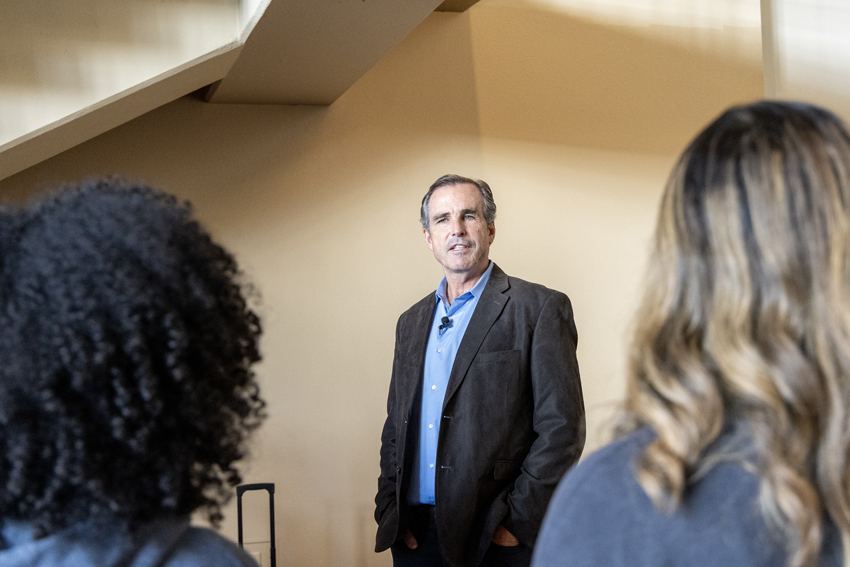Illegal substances such as marijuana, cocaine and heroine have reputations for causing health problems and potentially begin to disrupt the lives of those who abuse them.
The usage of addictive substance in North America is dated as early as the 1400s, when tobacco was discovered among the Native Americans. The practice continues as an often-addicting habit harmful to the health of those who experience it, according to netdoctor.co.uk.
In the early 1900s, the U.S. accepted smoking as a normal social habit. It was not until research discovered the side effects that the number of smokers declined. Smoking is now illegal in restaurants, hotels and all other public places in most states, according to the American Lung Association.
Despite the danger and state restrictions, drug substances, as well as cigarettes, have become popular among teenagers. According to the American Lung Association, around 3600 children between the ages of 12 and 17 will smoke their first cigarette every day.
?The main reason why teenagers smoke is because it makes them feel cool,? Mike, a junior who withheld his name, said. ?If they have friends who smoke they’re more inclined to take up the habit. It’s all about peer pressure.”
However, once teens become involved with the drugs, the ‘cool factor’ often fades and larger issues emerge, according to Mike.
“Then, once they start it’s really hard to stop,” Mike said. “I don’t think that cigarettes are that closely connected to other drugs. It’s a pretty big jump because they’re illegal, much harder to get, and worse for you.?
With the pressure of school, friends and family, drugs provide a way to relax and forget about the problems in everyday life. Because the body may begin to rely on the foreign substance, it becomes difficult for a person to quit without the help of a rehab program.
According to Mike, smoking is less common on campus than at public schools, where the habit can be all-consuming.
?From my experience, smoking is more popular at other schools than at our school,? Mike said. ?If you walk around after school on a public campus, nearly every kid is smoking. It’s gross to let something control your life whether it’s smoking, food or even money.
?I’ve watched my brother become addicted and it’s really hard because you fear that their life will be shortened or that they’ll continue to make bad choices. I would never consider taking up the habit because it’s disgusting and it hurts everyone around you.?
While smoking drugs and cigarettes has become a major part of some teens’ lives, other students have grown up isolated from all forms of tobacco and narcotics.
?I’ve never really been around people who smoke,? Susan, a junior who withheld her name, said. ?I’ve never tried it because it harms your health and even the smell makes me sick. When my mom was in school, kids used to smoke in the bathroom. That’s one of the main reasons why I go to a private school. My mom didn’t want me to have to experience that.?
While some students choose to distance themselves from pressured environments, others put up with friends who smoke.
?I have friends who started smoking not too long ago,? Rosa, a sophomore who withheld her name, said. ?I don’t condone what they’re doing, but I’m still friends with them. Some are trying to quit but it’s so addicting. I’ve tried to tell them how bad it is but they can’t stop.
“Not only are they hurting themselves, but also the people around them. They’re ruining many relationships and losing time with friends by always going outside to smoke.?
According to Dr. Marybeth Yuskavage of Clovis Medical Group, teenagers often retain the habit until later years.
?Teenagers are not always truthful. The likelihood of teens who smoke is higher than what is told,” Yuskavage said. “Honestly, most teenagers do not want to quit [smoking] and are not motivated. They start to realize it’s probably not a good idea in later years when they want to have kids or their spouses tell them to quit.?
Many options are available for those who decide to stop smoking. Even teenagers have access to certain medications or outside assistance.
?Unfortunately parents want to be in the room during their child’s appointment. I can’t say anything to the patient in front of their parents,” Yuskavage said. “If I can get them alone I can tell them they’re not supposed to be smoking. I try to point them to outside help such as 1-800-NO-BUTTS, which is a help hotline for people who want to quit.”
Since the students are generally underage, it can be more difficult to encourage them to quit.
“If they’re under 18, prescription medication is difficult because I have to talk to parents,” Yuskavage said. “Physicians do not make as much of impact as we wish, but we keep trying.?
For more information and advice about quitting, please check out quitassist.com or talk with or e-mail Molly Sargent, vice principal, or Mic Fuller, dean of men.






